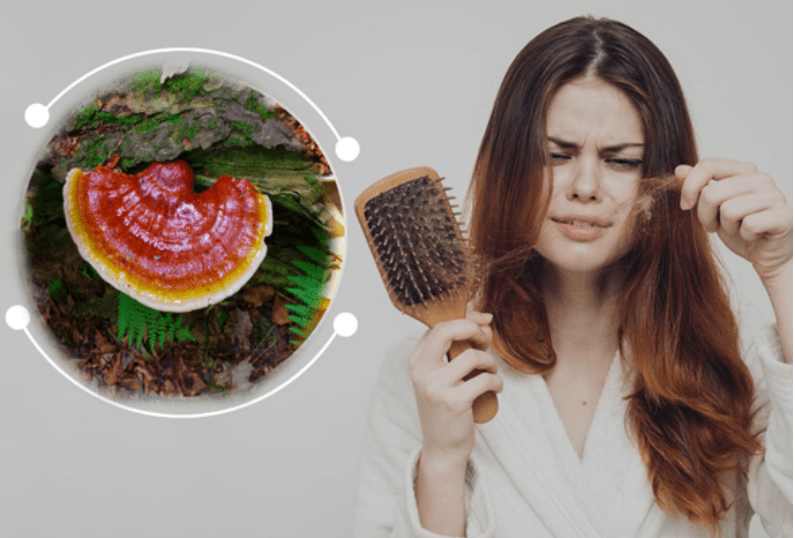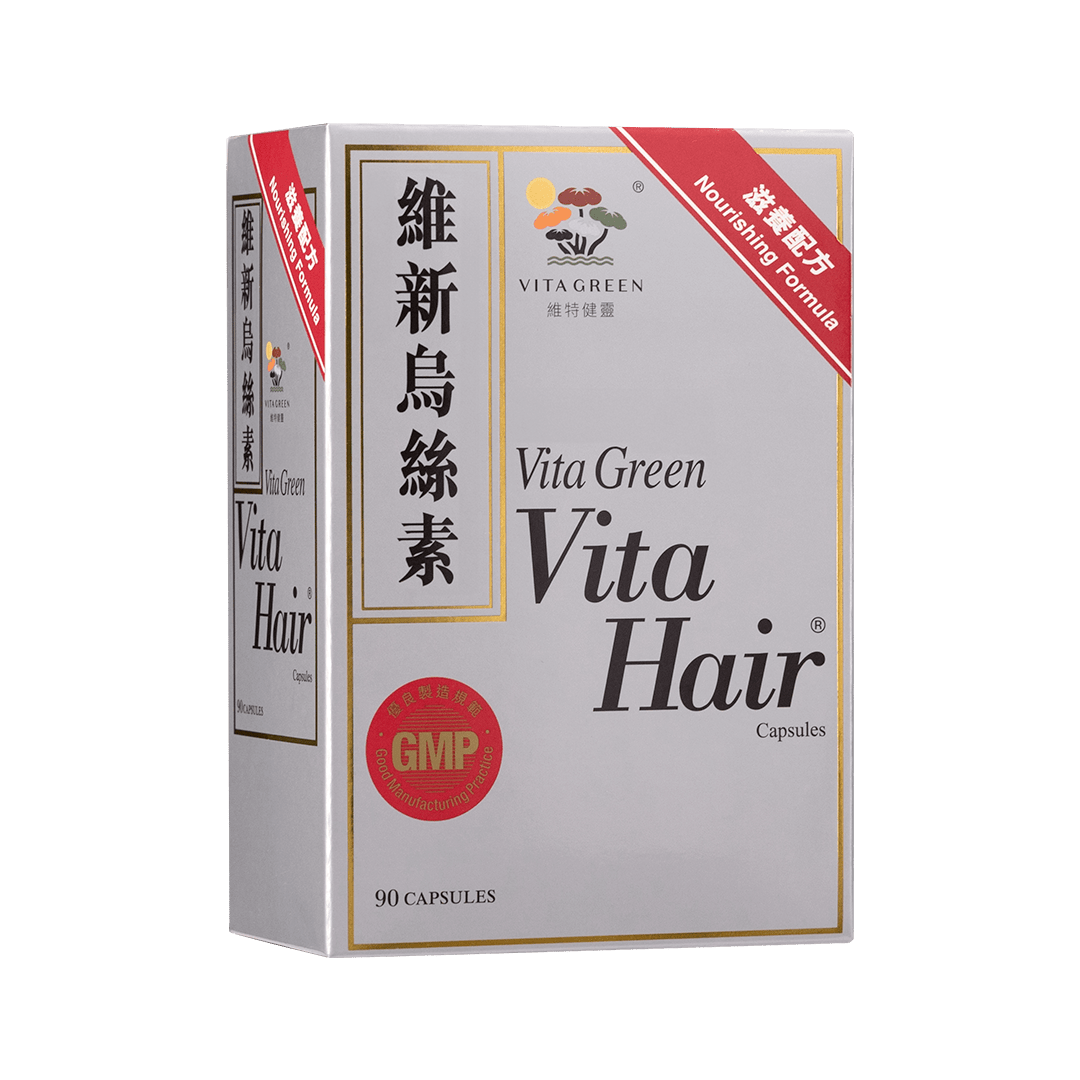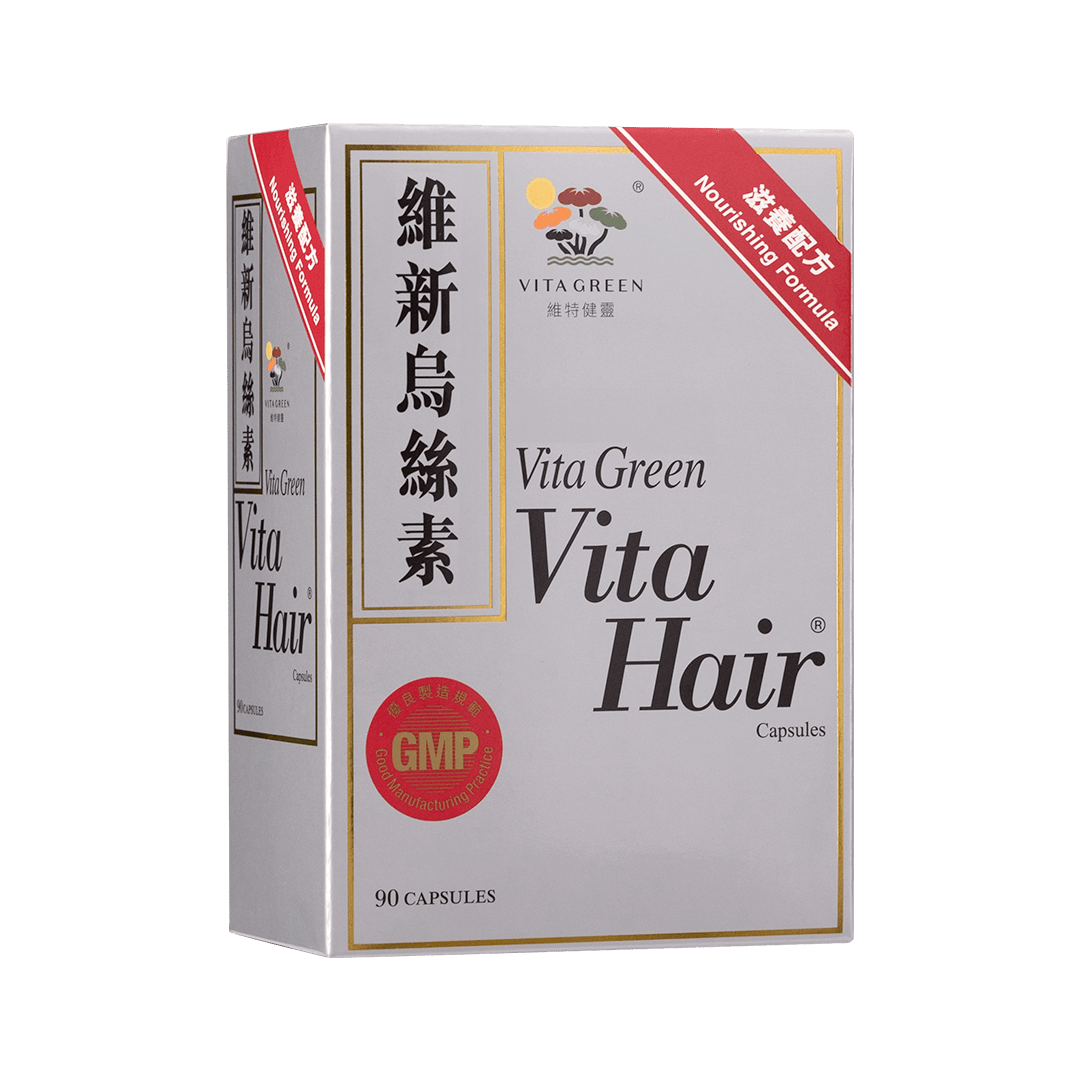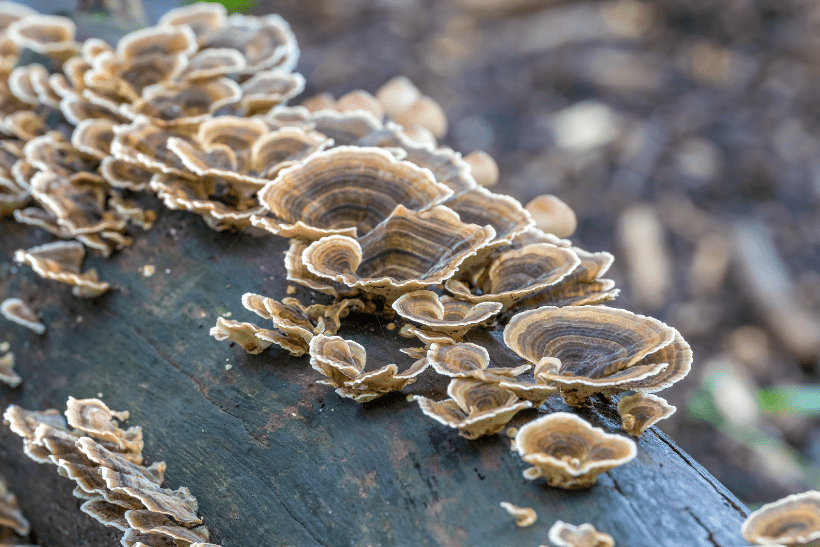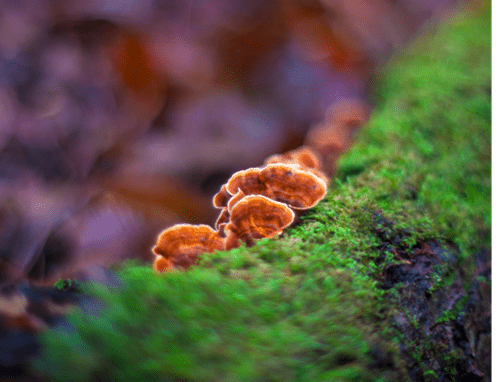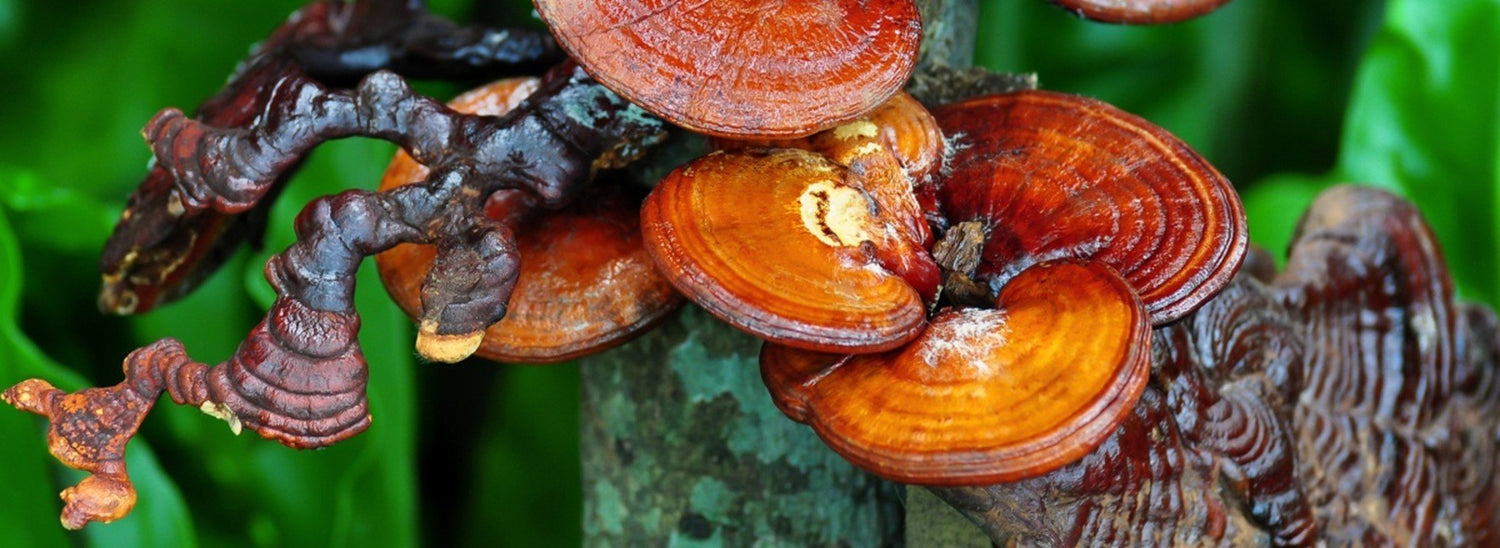There are many different types of mushrooms, and each one has its own unique set of benefits. Out of all the different kinds of mushrooms, the reishi mushroom is one of the most beneficial. Reishi mushroom (aka, Ganoderma lucidum or lingzhi) is a fungus that grows in many humid areas in Asia. For centuries, this fungus has been part of Eastern medicine. This mushroom is packed with antioxidants, polysaccharides, and triterpenes, which all work together to provide a long list of health benefits. Here are ten benefits of reishi mushroom that you should know about that do not only help with your hair problems but also your overall wellness.
1. Modulates the Immune system
The most important effect of the reishi mushroom is how it modulates the immune system .
According to a few studies, this mushroom affects the DNA of white blood cells, making them more efficient at identifying and neutralizing external threats.
Moreover, reishi seems to alter the inflammation pathways of white blood cells .
There is also some evidence that shows the effects of reishi mushrooms on a type of white blood cell known as natural killer cells (NKs) that are responsible for fighting viral infections and cancerous cells .
In one study, researchers found that reishi boosts the number of lymphocytes in patients with colorectal cancer
Despite the fact that most of these studies were conducted in sick individuals, there is some growing evidence that reishi's benefits can help healthy people as well.
2. May lower the risk of cancer
As we mentioned above, the reishi mushroom has some antineoplastic properties
For instance, one study found that around 2,360 out of 4,000 breast cancer survivors took reishi mushrooms.
Furthermore, some test-tube studies show that the reishi mushroom can cause the death of cancer cells .
There is also some evidence that reishi may help with prostate cancer. This is through the effects of this fungus on testosterone .
Another study found that this mushroom can aid in the prevention or eradication of colorectal cancer . (12)
3. Aids with mental disorders
Many researchers reported that the reishi mushroom helps with mood disorders, such as depression, anxiety, and chronic stress. It also helps with fatigue.
In one study, scientists examined 132 people with chronic fatigue syndrome. This condition is poorly understood but presents with pain, aches, dizziness, headaches, and irritability. (13)
The results of the study were after 8 weeks of taking reishi supplements, the symptoms of fatigue improved significantly.
Reishi also works on mental disorders. The same study found that participants with depression and anxiety experienced noticeable clinical improvement.
4. Promotes Heart Health
Reishi extracts are commonly used to support cardiovascular health as constituents found in Reishi are positive qualities that allow Reishi to support people with heart diseases. In a study that lasted 12 weeks and included 26 participants, researchers found that the reishi mushroom increases good cholesterol and lowers triglycerides. The combined effects lead to a lower risk of atherosclerosis and coronary artery disease.
5. Boosts energy levels
Energy levels start to drop in your 30s. Depending on your level of activity, diet, and other factors, you may experience declining energy at a faster or slower rate.
Regardless, it is important to supply your body with the essential nutrients that keep your cells functioning optimally. This is where reishi comes in handy. For centuries, native Asians used it as a home remedy to heal wounds and accelerate the recovery process.
With all the vitamins, minerals, antioxidants , anti-inflammatory compounds , and energy-boosting ingredients, reishi is one of the best mushrooms when it comes to elevating your energy levels. (Chan et al, 2021)
6. Dampens low-grade inflammation
Low-grade inflammation is the hallmark of most chronic and debilitating illnesses. These include heart disease, Alzheimer's disease , cancer, and more. Finding a way to address this process without taking pharmacological drugs is a primary goal for researchers.
You see, taking non-steroidal anti-inflammatory drugs or corticosteroids for this type of inflammation does more harm than good. The side effects of these drugs are simply too grave to warrant their prescription. For this reason, you need a natural alternative, such as the reishi mushroom.
Many people started benefiting from taking reishi supplements to manage arthritis , gout, chronic pain, and headaches. (Minihane,2015)
Note that hair loss can be the result of chronic inflammation that affects the scalp. Consequently, the scarring response kicks in, which causes irreversible hair loss . Areas with scars are not compatible with hair growth .
Despite that, we still need research to objectify the effects of reishi on diseases with chronic inflammation. These studies need to include human subjects.
7. Controls blood sugar levels
Multiple resources indicate that the reishi mushroom can lower blood sugar levels in animals. What's more, there is some preliminary evidence that the same effects apply to humans.
Despite that, there is conflicting evidence about the reality of these findings. For instance, another study challenged the initial results on humans by finding no benefits for fasting blood sugar.
Other research studies showed that reishi can lower blood sugar levels after eating meals.
8. Exerts antioxidative properties
Antioxidants are molecules that protect cells from the devastating effects of free radicals. tv
Excess free radicals in the body lead to many health problems, including heart disease, neurodegenerative illnesses, and hair loss.
Fortunately, reishi contains many potent antioxidants that neutralize the damage of free radicals. Eventually, your cells maintain their structural integrity and remain healthy.
For hair loss, in particular, oxidative stress is a huge trigger of effluvium telogen, which is a condition that causes temporary hair thinning.
9. Inhibits Dihydrotestosterone
Dihydrotestosterone (DHT) is a metabolite of testosterone that gets produced with the help of an enzyme called 5α-reductase.
All of this is physiological and happens to everyone. However, men with a genetic predisposition to androgenic alopecia (ie, male-pattern baldness) are over-sensitive to the action of DHT on the scalp.
Over time, DHT starts to alter the function of hair cells, leading to baldness.
Fortunately, lowering the levels of DHT and reversing baldness at early stages is possible. One way to achieve this goal is by taking reishi supplements.
In one study , researchers tested 15 mushroom species to objectify their 5α-reductase inhibitory effects. Reishi showed the most elevated percentage of 5α-reductase inhibition – around 70% to 80%. The second most effective mushroom, Pleurotus status , had a percentage of 60%. (Fujita et al, 2005)
To further test the effect of the reishi mushroom, scientists divided some rats into three groups:
- First group received testosterone only
- Second group received Reishi mushroom only
- Third group received both testosterone and reishi mushroom
The results showed that the second and third groups had lower prostate weight, which demonstrates the DHT-inhibiting effects of the mushroom.
Because reishi mushroom lowers DHT levels, they can be useful for maintaining healthy hair and promoting hair regrowth.
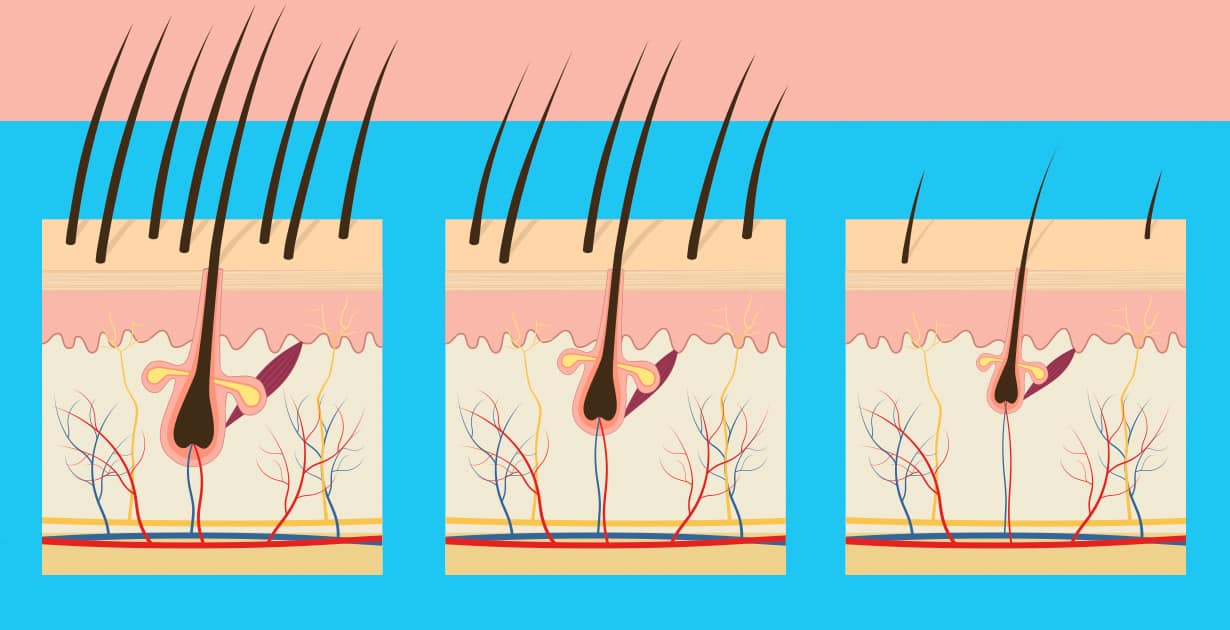
10. Eradicates bacteria and other microbes
Reishi mushrooms may have some potent properties against microbes. With the increasingly concerning trend of antibiotic resistance, any natural molecule that offers a powerful antimicrobial effect is at the forefront of scientific research. Well, some forms of hair loss are the result of bacterial overgrowth and fungal infections. Therefore, adding a potent antimicrobial agent, such as reishi mushroom, to your hair care routine can be the missing piece of the puzzle to stop hair loss. (27)
Reishi mushroom provides a myriad of health benefits that concern every organ system. The effects of this mushroom on hair loss are one of the reasons that it has become very popular in herbal clinics and hair salons. If you are looking for a natural way to improve hair growth, Reishi mushroom may be the answer. Try taking Reishi mushroom supplements like Vita Hair that can improve your overall health, including better hair growth. Consider adding this powerful fungus to your daily routine and see if you start seeing improved hair growth in addition to other health benefits. We hope that this article managed to highlight the potential benefits of the reishi mushroom, especially on hair growth.
Reference
- Mandal, Arundhati, and Chandra Viswanathan. “Natural killer cells: In health and disease.” Hematology/oncology and stem cell therapy vol. 8,2 (2015): 47-55. doi:10.1016/j.hemonc.2014.11.006
- Sliva, Daniel. “Ganoderma lucidum (Reishi) in cancer treatment.” Integrative cancer therapies vol. 2,4 (2003): 358-64. doi:10.1177/1534735403259066
- Liu, Yu-Wei et al. “Evaluation of antiproliferative activities and action mechanisms of extracts from two species of Ganoderma on tumor cell lines.” Journal of agricultural and food chemistry vol. 57,8 (2009): 3087-93. doi:10.1021/jf900011f
- Liu, Jie, et al. "Quantitative determination of the representative triterpenoids in the extracts of Ganoderma lucidum with different growth stages using high-performance liquid chromatography for evaluation of their 5α-reductase inhibitory properties." Food chemistry 133.3 (2012): 1034-1038.
- Tang, Wenbo et al. “A randomized, double-blind and placebo-controlled study of a Ganoderma lucidum polysaccharide extract in neurasthenia.” Journal of medicinal food vol. 8,1 (2005): 53-8. doi:10.1089/jmf.2005.8.53
- Klupp, Nerida L et al. “Ganoderma lucidum mushroom for the treatment of cardiovascular risk factors.” The Cochrane database of systematic reviews vol. 2015,2 CD007259. 17 Feb. 2015, doi:10.1002/14651858.CD007259.pub2
- Åkerstedt, Torbjörn et al. “Aging and the Change in Fatigue and Sleep - A Longitudinal Study Across 8 Years in Three Age Groups.” Frontiers in psychology vol. 9 234. 8 Mar. 2018, doi:10.3389/fpsyg.2018.00234
- Chan, Sze Wa et al. “The beneficial effects of Ganoderma lucidum on cardiovascular and metabolic disease risk.” Pharmaceutical biology vol. 59,1 (2021): 1161-1171. doi:10.1080/13880209.2021.1969413
- Minihane, Anne M et al. “Low-grade inflammation, diet composition and health: current research evidence and its translation.” The British journal of nutrition vol. 114,7 (2015): 999-1012. doi:10.1017/S0007114515002093
- Dudhgaonkar, Shailesh et al. “Suppression of the inflammatory response by triterpenes isolated from the mushroom Ganoderma lucidum.” International immunopharmacology vol. 9,11 (2009): 1272-80. doi:10.1016/j.intimp.2009.07.011
- Peyravian, Nadia et al. “The Inflammatory Aspect of Male and Female Pattern Hair Loss.” Journal of inflammation research vol. 13 879-881. 10 Nov. 2020, doi:10.2147/JIR.S275785
- Xiao, Chun et al. “Hypoglycemic effects of Ganoderma lucidum polysaccharides in type 2 diabetic mice.” Archives of pharmacal research vol. 35,10 (2012): 1793-801. doi:10.1007/s12272-012-1012-z
- Klupp, Nerida L et al. “Ganoderma lucidum mushroom for the treatment of cardiovascular risk factors.” The Cochrane database of systematic reviews vol. 2015,2 CD007259. 17 Feb. 2015, doi:10.1002/14651858.CD007259.pub2
- Blokhina, Olga, Eija Virolainen, and Kurt V. Fagerstedt. "Antioxidants, oxidative damage and oxygen deprivation stress: a review." Annals of botany 91.2 (2003): 179-194.
- Grant, Paul, and Shamin Ramasamy. “An update on plant derived anti-androgens.” International journal of endocrinology and metabolism vol. 10,2 (2012): 497-502. doi:10.5812/ijem.3644
- Fujita, Rumi et al. “Anti-androgenic activities of Ganoderma lucidum.” Journal of ethnopharmacology vol. 102,1 (2005): 107-12. doi:10.1016/j.jep.2005.05.041
- Ergun, Bulent. “Evaluation of antimicrobial, Cytotoxic and genotoxic activities of Ganoderma lucidum (Reishi mushroom).” Pakistan journal of pharmaceutical sciences vol. 30,5(Supplementary) (2017): 1991-1995.
- Wachtel-Galor, Sissi, et al. "Ganoderma lucidum (Lingzhi or Reishi)." Herbal Medicine: Biomolecular and Clinical Aspects. 2nd edition (2011).
- WebMD Editorial Contributors . “Reishi Mushrooms: Health Benefits, Safety Information, Dosage, and More.” WebMD , WebMD, 11AD, https://www.webmd.com/diet/health-benefits-reishi-mushrooms#1.


